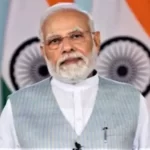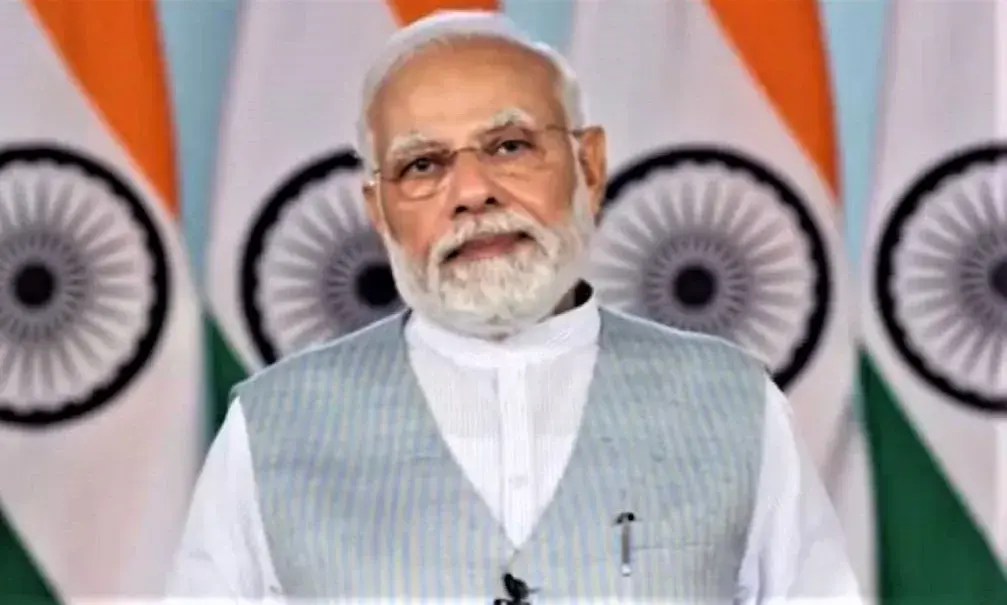ArdorComm Media Bureau
August 26, 2022
While underlining the significance of the labour force in India’s development on Thursday, Indian Prime Minister Narendra Modi said that the future would require flexible workplaces, a work-from-home ecosystem, and flexible work hours.
In a video address to the National Conference of the Labour Ministers of all States and Union Territories, Prime Minister Modi stated that “India’s labour force has a huge role to play in realising India’s dreams and aspirations to build a developed nation in the Amrit Kaal.” With this kind of thinking, the nation is consistently working for millions of employees in both the organised and unorganised sectors, he continued.
The Pradhan Mantri Jeevan Jyoti Bima Yojana, Pradhan Mantri Suraksha Bima Yojana, and Pradhan Mantri Shram-Yogi Maandhan Yojana have all offered some kind of social security protection to the workers, and the PM reaffirmed a number of government efforts. The workers now have the assurance that their labour and contribution will be valued due to these programmes.
According to a study, the Emergency Credit Guarantee Scheme prevented the loss of 1.5 crore employment during the pandemic. We can see that the workers have devoted all of their effort to overcoming this epidemic, just as the country did when its citizens needed it most, he said.
The prime minister stated that one of the main initiatives to include the labour force in the purview of social security is the e-Shram portal. In just one year, around 28 crore workers from 400 areas have registered on the web. The people who have benefited the most from this are domestic workers, migrant labourers, and construction workers. He requested that the state portals and the e-Shram portal be linked.
He continued by saying that over the previous eight years, the government had taken steps to abolish laws from the time of slavery that still adhered to the previous way of thinking. Currently, the country is updating, simplifying, and changing such labour legislation. As a result, 29 labour laws were combined to establish four simple labour codes. Through minimum wages, job security, social security, and health security, this will ensure the empowerment of employees, he continued.
Given the worldwide situation, the prime minister emphasised the need for reform. He emphasised the need for quick decisions and swift action in order to effectively capitalise on the fourth industrial revolution. In light of platform, gig, and online services, Modi emphasised the need to be conscious of how the nature of work is evolving. He asserted that “appropriate policies and initiatives in this field can help India become a worldwide leader.”
Flexible work environments, a work-from-home ecosystem, and flexible hours are necessary for the future. We may use policies like flexible work arrangements as ways to encourage women to enter the workforce, he said.
In his address to the nation on August 15 from the Red Fort ramparts, the Prime Minister recalled his call for the full participation of the women’s power in the nation. He claimed that by effectively utilising women’s influence, India might achieve its objectives more quickly. The need to think about how to support women in the nation’s developing sectors was another point Modi emphasised.
He brought up India’s demographic dividend and said that the country’s success in the twenty-first century will depend on how well it is used. We can benefit from global opportunities by building a highly qualified workforce, he added. Modi also emphasised the fact that India and many other countries across the world are entering into cooperative agreements regarding migration and mobility, and he urged all the states in the nation to take advantage of these opportunities. We must put in more effort and impart our knowledge to one another, he said.
The Prime Minister reminded everyone present that our building and construction workers are an integral part of our workforce and urged them to make the most of the “cess” that had been planned for them. “I have been informed that the states have not yet used nearly Rs 38,000 crore of this cess,” he said.
He urged everyone to think about how the Ayushman Bharat programme and ESIC might benefit more and more workers.
The two-day conference was organised by the Union ministry of labour and employment on August 25 and 26 in Tirupati, Andhra Pradesh, in the cooperative federalist spirit to talk about significant labor-related issues.


